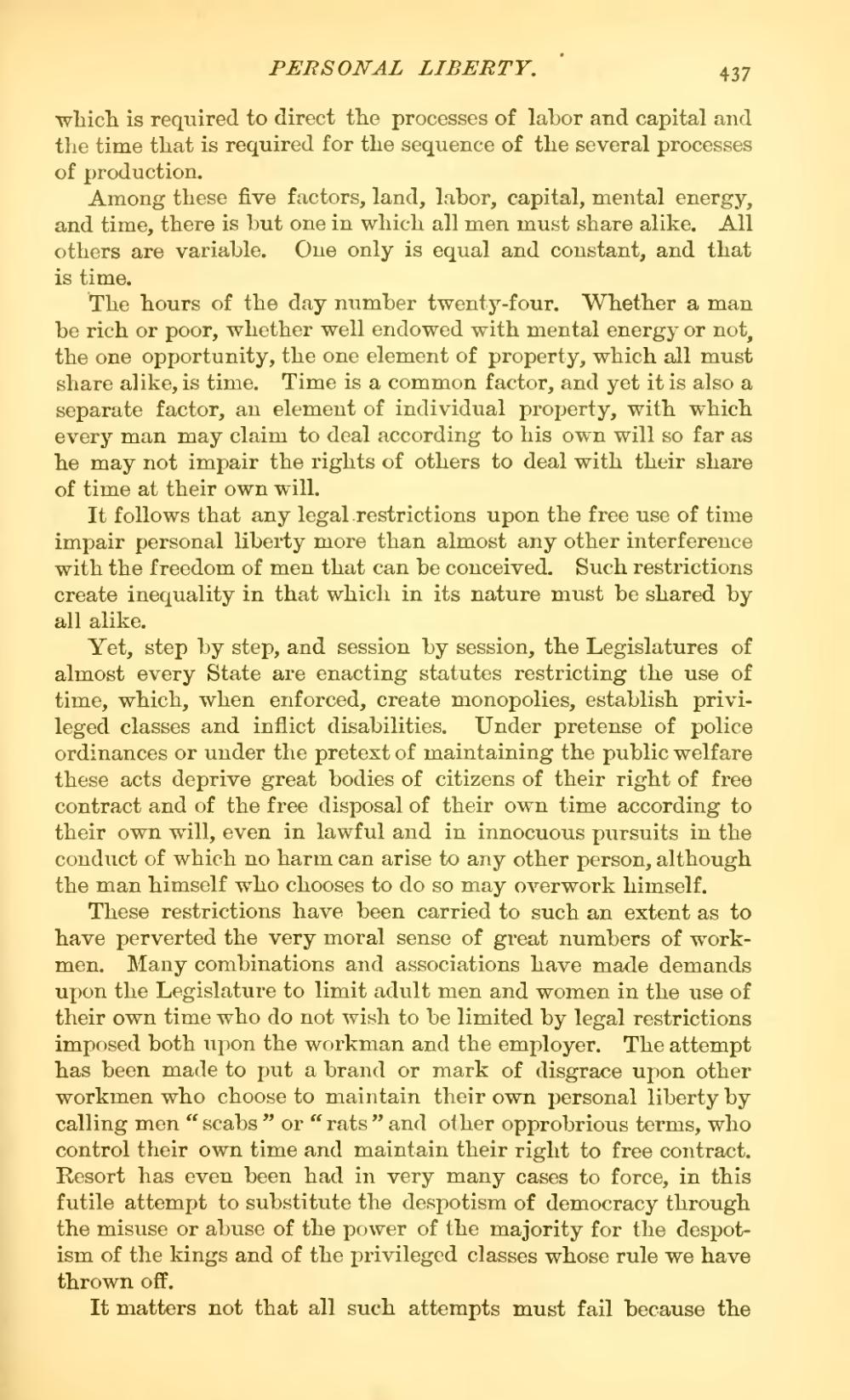which is required to direct the processes of labor and capital and the time that is required for the sequence of the several processes of production.
Among these five factors, land, labor, capital, mental energy, and time, there is but one in which all men must share alike. All others are variable. One only is equal and constant, and that is time.
The hours of the day number twenty-four. Whether a man be rich or poor, whether well endowed with mental energy or not, the one opportunity, the one element of property, which all must share alike, is time. Time is a common factor, and yet it is also a separate factor, an element of individual property, with which every man may claim to deal according to his own will so far as he may not impair the rights of others to deal with their share of time at their own will.
It follows that any legal.restrictions upon the free use of time impair personal liberty more than almost any other interference with the freedom of men that can be conceived. Such restrictions create inequality in that which in its nature must be shared by all alike.
Yet, step by step, and session by session, the Legislatures of almost every State are enacting statutes restricting the use of time, which, when enforced, create monopolies, establish privileged classes and inflict disabilities. Under pretense of police ordinances or under the pretext of maintaining the public welfare these acts deprive great bodies of citizens of their right of free contract and of the free disposal of their own time according to their own will, even in lawful and in innocuous pursuits in the conduct of which no harm can arise to any other person, although the man himself who chooses to do so may overwork himself.
These restrictions have been carried to such an extent as to have perverted the very moral sense of great numbers of workmen. Many combinations and associations have made demands upon the Legislature to limit adult men and women in the use of their own time who do not wish to be limited by legal restrictions imposed both upon the workman and the employer. The attempt has been made to put a brand or mark of disgrace upon other workmen who choose to maintain their own personal liberty by calling men "scabs" or "rats" and other opprobrious terms, who control their own time and maintain their right to free contract. Resort has even been had in very many cases to force, in this futile attempt to substitute the despotism of democracy through the misuse or abuse of the power of the majority for the despotism of the kings and of the privileged classes whose rule we have thrown off.
It matters not that all such attempts must fail because the

